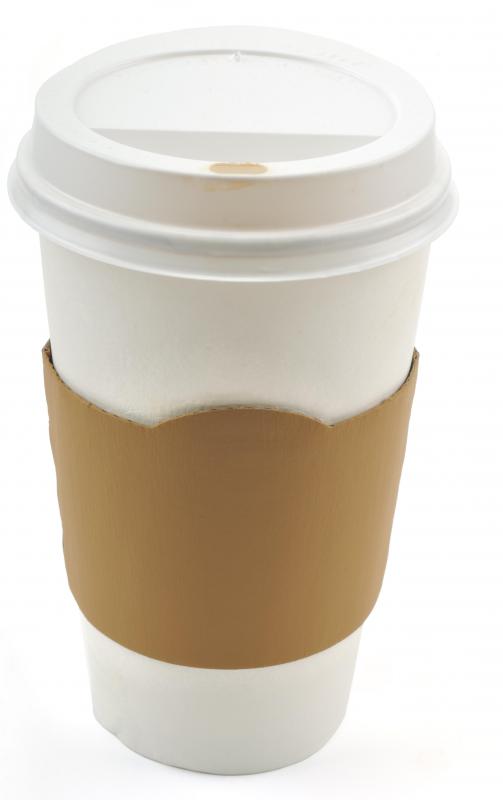At WiseGEEK, we're committed to delivering accurate, trustworthy information. Our expert-authored content is rigorously fact-checked and sourced from credible authorities. Discover how we uphold the highest standards in providing you with reliable knowledge.
What is the Connection Between Caffeine and Blood Sugar?
Research on caffeine suggests there is a connection between caffeine and blood sugar, with doses of over 250 milligrams of caffeine a day contributing to elevated blood glucose levels. For context, this is about two cups of regular coffee. People who have difficulty regulating their blood sugar because of conditions like diabetes may need to restrict their caffeine intake to stay healthy, although they do not necessarily need to cut out caffeine altogether.
Caffeine appears to interfere with the action of insulin in the body, explaining the connection between caffeine and blood sugar. People with poorly controlled diabetes can experience a hyperglycemic episode as their blood glucose rises in response to the caffeine exposure. Over time, this can put stress on the body and create complications like diabetic neuropathy, where the peripheral nervous system is damaged and people experience numbness and tingling. For people who control their diabetes well and plan ahead, the risks are much lower.

Studies have noted that coffee itself can be beneficial for preventing and controlling diabetes. Researchers concerned about the connection between caffeine and blood sugar suggest drinking decaffeinated coffee so people can enjoy the benefits of this popular beverage without the risks. Another option is to watch coffee portion sizes carefully and avoid drinking more than two cups over the course of the day. People who notice a swing in blood glucose levels might be more sensitive, or drinking stronger coffee, and could need to consume less.

Many foods and chemical compounds can interact with blood sugar. The connection between caffeine and blood sugar is important to be aware of, as caffeine is found in sodas, tea, and chocolate in addition to coffee. If people consume too many foods with caffeine over the course of the day, they can be at risk of high blood sugar. When designing a diabetes diet, it is important to account for concerns like the interactions between caffeine and blood sugar levels, and to provide some room for treats or to develop alternatives to favorite treats so patients can adhere to their diets more effectively.
People interested in consuming antioxidants for diabetes have a wide range of food products to choose from, not just decaffeinated coffee. Many fruits like blueberries and cranberries are naturally high in these useful compounds, and whole fruit can be a good choice for a patient with diabetes. Exercising regularly can also help with diabetes control and prevention, in addition to addressing other health concerns.
AS FEATURED ON:
AS FEATURED ON:












Discussion Comments
I completely agree that the effect of caffeine on blood sugar depends on the individual. I have low blood sugar most of the time and having caffeine helps keep it up. My cousin is a diabetic and has black coffee daily without problems. So it depends.
@ddljohn-- You're right, there are studies which say that caffeine helps with insulin sensitivity and helps prevent type 2 diabetes. But there are also studies that show the opposite.
I think some components of caffeinated drinks like coffee help with insulin sensitivity while other components increase blood sugar.
It's a good idea for everyone to monitor themselves when having caffeine. Caffeine might not affect one person's sugar levels but it might raise another's. So monitor your blood sugar and decide for yourself if you should limit your caffeine intake or not. If you have normal blood sugar levels, then it's probably fine to have a moderate amount of caffeine.
I think this is the best way to go about it because it really is confusing. Also, you might want to ask your doctor about this at your next check-up.
I thought that the connection between caffeine and blood sugar went the other way. I remember reading that caffeine triggers insulin release in the body, which in turn reduces blood sugar. Is this wrong?
I have diabetes and when I have symptoms of high blood sugar levels, I drink a few cups of unsweetened black tea. It seems to help. I've always assumed that caffeine is good for me so I'm surprised by this article.
Post your comments